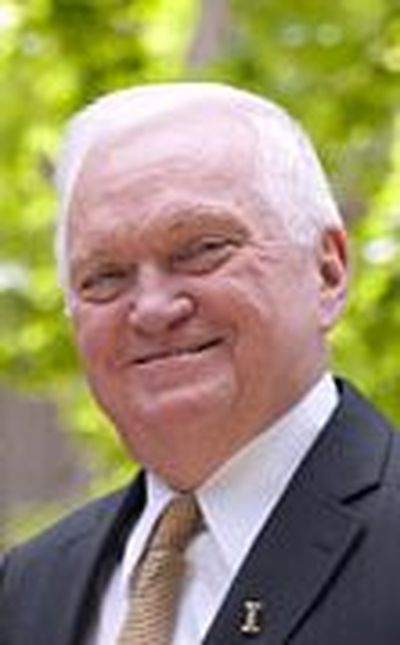Ed Board backs Boise law school expansion, rejects cap

BOISE – Idaho’s State Board of Education has voted 5-3 in favor of adding a second year to the University of Idaho’s law school program in Boise, which currently offers only the third year of law school, leaving students to complete their first and second years in Moscow.
The vote during a special meeting Monday came after much debate, during which past opponents of the move said they’d support it if it came along with a cap on total UI law school enrollment to avoid adding more lawyers to the state.
Board member Rod Lewis said bringing UI’s law school programs to Boise enhance them by allowing students to learn close to the center of state’s government and courts, business community, and largest concentration of legal professionals. “I certainly have felt that the quality of the program, both in terms of instruction, in terms of enrollment, etc., would be improved,” he said. “It’s not their intent that by doing so, they would significantly expand the size of the school.”
Lewis proposed a cap on total law school enrollment of 360, which is slightly over the average enrollment for the past five years, to accompany the Boise-branch funding.
UI President Don Burnett said, “We do think that the second year program (in Boise) will make the law school more attractive and more competitive. I do think the principal effect will be quality and giving more access to students in areas where they want to get either specialty training or get their training at a place advantageous to themselves and their families, economically and professionally.” But, he said, “Our preference is not to have a cap. … Our preference is that we be given the same sound discretion that other academic units have, rather than a cap, even though the 360 is a figure we could live with.”
Adding the second year in Boise would cost the state about $400,000 a year.
Board member Richard Westerberg said, “Frankly, I’m still conflicted, because what we’re really talking about here is almost another million-dollar annual subsidy to produce lawyers (by adding the second-year program to the third). … If we actually got another million dollars going forward to spend on something, is the highest and best use to produce attorneys?”
But he said he’d support the move with the cap attached.
Lewis said there’s an oversupply of attorneys nationwide, but Burnett said those statistics don’t count the 30 percent of UI law graduates who choose to go into another profession, rather than practice law.
Board members noted that Concordia Law School, a private law school, has opened in Boise and already attracted more than 70 students. “Concordia is showing us that there is a demand to have this kind of education in Boise,” Lewis said, adding that he believes the UI law school should be moved to Boise.
Burnett said Boise is the best location for students in some fields, and Moscow is the best for others; he’s not backing a move.
Burnett said Idaho is a net importer of attorneys, with only 28 percent of those admitted to the bar in Idaho in recent years having graduated from the U of I.
“We are nowhere near saturating the legal education market,” Burnett declared. “We are still admitting only about half of the applicants.”
Board member Emma Atchley called a cap “a very bad precedent,” and board member Bill Gosling suggested it might even violate the Idaho Constitution’s requirement that the UI law school provide legal education throughout the state.
Atchley said, “I guess I’m rather amazed that we would even take a step of this nature.”
Gosling made a substitute motion to back funding for the second-year Boise program with no mention of a cap; it passed 5-3, with just Lewis, Westerberg and member Ken Edmunds dissenting. Those voting in favor were Gosling, Atchley, Don Soltman, Milford Terrell, and Idaho state schools Superintendent Tom Luna. The proposal now goes to the governor and Legislature.
Lawmakers this year rejected a similar request, after the governor didn’t recommend funding it.
The state board first requested state funding for law classes in Boise in fiscal year 2010, but that was a year of big budget cuts. The university then shifted other resources and tapped student fees to start up a scaled-back third-year program in Boise that fall for 29 students; it now has 36 students.
During the special meeting, the board also voted unanimously in favor of several other budget requests for the state’s public colleges and universities, including a $14 million request to boost funding to the institutions next year for faculty and student support aimed at Idaho’s goal of getting more of its population educated beyond high school.
Atchley said, “At some point, we have to recognize that to make our institutions better, we have to have a bigger pie – and unless we start asking for a bigger pie, we’re not going to get where we need to go.”
The budget that state lawmakers set this year for colleges and universities, $236.5 million in state general funds, is 21 percent less than the budget they set five years ago, in fiscal year 2009, of $285.2 million; the state’s higher education funding has dropped by $48.7 million a year since then.